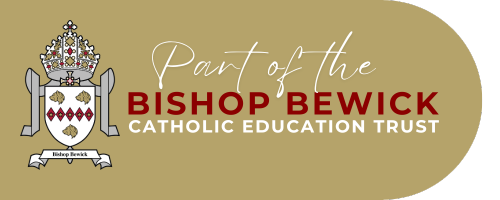
BRITISH VALUES
BRITISH VALUES

DEMOCRACY
A culture built upon freedom and equality, where everyone is aware of their rights and responsibilities.

RULE OF LAW
The need for rules to make a happy, safe and secure environment to live and work.

TOLERANCE
Understanding that we all don’t share the same beliefs and values.

INDIVIDUAL LIBERTY
Protection of your rights and the right of others.

MUTUAL RESPECT
Respecting the values, ideas and beliefs of others whilst not imposing our own others.
CATHOLIC VALUES, BRITISH VALUES
British Values are promoted throughout the whole school alongside our Catholic Values:
Democracy: We actively promote and model democracy by:
-
Providing our children with a broad knowledge of and promoting respect for public institutions and services eg. MP visits into school, visits to/from Police, Hospitals, Fire Service, Local Councillors, visits to town hall.
-
Teaching children how they can influence decision making through the democratic process eg. School council, suggestion boxes, Parliament workshops, Pupil questionnaires, Year 6 exit interviews.
-
Encouraging pupils to become involved in decision making processes and ensuring they are listened to in school eg. student council, open door policy, consultation groups, reading ambassadors, pupil leaders, liaison between staff and pupils.
-
Teaching children how public services operate and how they are held to account through our PSHE Curriculum and visits from Police, School Health.
-
Modelling how perceived injustice can be peacefully challenged eg. by teaching about inspirational figures such as Ghandi, Mandela, Mother Teresa, Martin Luther King
Rule of Law: We actively promote and model the rule of law by:
-
Ensuring school rules are clear and fair by actively encouraging all members of our School Community to follow the Code of Conduct
-
Helping children to distinguish right from wrong eg. by using the example of Christ when dealing with behaviour that is not acceptable.
-
Promoting respect for the law and the basis on which it is made eg. through visitors such as Police, Councilors into school.
-
Helping children to understand that living under the rule of law protects individuals eg through our RE curriculum, through focus weeks, visitors.
-
Having a behaviour policy that is linked to restorative justice eg. that is based in the Christian value of forgiveness.
Individual Liberty: We actively promote and model individual liberty by:
-
Supporting pupils to develop their self-knowledge, self-esteem and self-confidence eg. through our Catholic ethos, our way of treating people, by investing heavily in meeting the needs of all of the children, by providing equality of opportunity, by knowing and understanding the needs of all of the children.
-
Encouraging pupils to take responsibility for their behaviour as well as knowing their rights eg. through linking rights with responsibilities, by having a fair and consistent approach to the behaviour policy.
-
Challenging stereotypes eg. visitors into school, disability awareness, anti-bullying and anti-racism learning, vocations week.
-
Implementing a strong anti-bullying culture.
-
Following the UNICEF Rights Respecting School agenda.
Respect and Tolerance: We actively promote and model respect and tolerance by:
-
Promoting respect for individual differences eg. through assemblies and masses, the RE curriculum, multicultural, multifaith weeks, through our Catholic ethos.
-
Helping children to acquire an understanding of and respect for their own and other cultures and ways of life eg through Geography, International Links, Religious Education, Multicultural and multifaith weeks.
-
Organising visits to places of worship, openly discuss and celebrate the differences between people such as differences of faith, ethnicity, disability, gender and different family situations such as looked after children, young carers.
On a more general level, the school undertakes assemblies which uphold traditional values of empathy, respect and tolerance. These are also taught within formal PSHE and RE lessons and on an informal nature throughout the school days.
PREVENTING RADICALISATION AND EXTREMISM
Radicalisation is defined as the act or process of making a person more radical or favouring of extreme or fundamental changes in political, economic or social conditions, institutions or habits of the mind.
Extremism is defined as the holding of extreme political or religious views.
The Governing Body of St Cuthbert’s Catholic Primary School has a zero tolerance approach to extremist behaviour for all school community members. We rely on our strong values to steer our work and ensure the pastoral care of our children protects them from exposure to negative influences.
St Cuthbert’s is fully committed to safeguarding and promoting the welfare of all its children. As a school we recognise that safeguarding against radicalisation is no different from safeguarding against any other vulnerability. At St Cuthbert’s, all staff are expected to uphold and promote the fundamental principles of British values, including democracy, the rule of law, individual liberty and mutual respect, and tolerance of those with different faiths and beliefs.
-
Children are encouraged to adopt and live out our Core Values. These complement the key “British Values” of tolerance, respect, understanding, compassion and harmonious living.
-
Children are helped to understand the importance of democracy and freedom of speech, through assemblies and through the elected School Council members
-
Children are taught how to keep themselves safe, in school and when using the internet.
-
Children participate in local community events so that they appreciate and value their neighbours and friends who may not share their faith background.
-
Children’s wellbeing, confidence and resilience are promoted through our planned curriculum and extra-curricular learning opportunities.
-
Children are supported in making good choices from a very young age, so they understand the impact and consequences of their actions on others.
THE ROLE OF THE CURRICULUM
Our curriculum promotes respect, tolerance and diversity. Children are encouraged to express themselves through discussions, debates and consultations. The RE (Religious Education), PSHE (Personal, Social and Health Education), Citizenship and SMSC (Spiritual, Moral, Social and Cultural) provision is embedded across the curriculum, and underpins the ethos of our school. Children learn about all major faiths and visit places of worship wherever possible. They are also taught about how to stay safe when using the internet.
ST CUTHBERT’S VALUES
Our approach to teaching at St Cuthbert’s is built on following in the footsteps of Jesus, promoting to the school community the Gospel values of respect, forgiveness, truth, kindness and equality. Whilst all of these enable the children to become well-rounded individuals we recognise the importance of resilience in preventing children being drawn into extremist ways of thinking.
Although serious incidents involving radicalisation have not occurred at St Cuthbert’s to date, it is important for us to be constantly vigilant and remain fully informed about the issues which affect the region in which we teach. Staff are reminded to suspend any professional disbelief that instances of radicalisation ‘could not happen here’ and to refer any concerns through the Designating Safeguarding Leaders.


